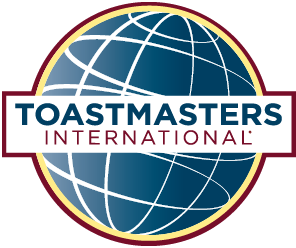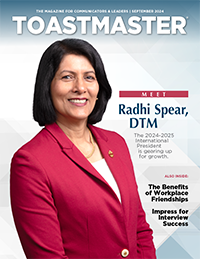Professional networking. People either love it or loathe it. To some, it’s a chance to socialize. To others, it’s an overwhelming, even scary process. For these people, networking is not working.
But what if, instead of “networking,” professionals could learn to think of it as “building connections”? Building connections aids professional development, but it’s more than that. Most networking goals are business-related: build a clientele, get referrals, find a job prospect. Building more meaningful connections can accomplish these things while filling a deeper need as well.
Importantly, there’s more than one right way to do it. Whether you prefer hosting over-the-top events for anyone who’d care to attend, or sending carefully written emails to old friends and new, one method is not better than the other. If you’re growing your sphere of influence—with an eye to maintaining the connections you already have—you’re on the right path.
Health Benefits of Connections
There are biological benefits as well. In the book Click: The Magic of Instant Connections, authors Ori Brafman and Rom Brafman describe results of research conducted by neuroscientists from the U.S. and Australia. Using functional MRI scans, the researchers observed that the brain has a dramatic reaction correlating to either the presence or absence of human connections.
Warm, supportive and enjoyable connections cause the brain to be flooded with the stress-reducing neurotransmitter dopamine. In the absence of connections, the brain’s pain center, the anterior-cingulate cortex, was noticeably more active. Stress has been shown to adversely affect digestive function, coronary arteries, insulin regulations and the immune system. In short, connections make us feel better, and disconnection hurts.
Professional Benefits of Connecting
Statistics show that building personal relationships is essential to growing your career. A 2017 survey of almost 16,000 LinkedIn users worldwide indicates:
- 70 percent of respondents were hired at a company where they had a connection.
- 80 percent of professionals consider networking to be important to career success.
- 61 percent of professionals agree that regular interaction with people they are connected to can lead to possible job opportunities.
In Toastmasters, business opportunities abound, if you’re observant and responsive. Rena Weikle, DTM, of The Battlefords Club in Battlefords, Saskatchewan, Canada, says, “Someone who was in my club for just one year later called me with a job offer. It was outside my expertise and comfort zone, but I took it. I’m still there 18 years later!”
Linda Anger, DTM, of Rochester Hills, Michigan, says, “While visiting another club, I heard an interesting speech by a clinical psychologist. I suggested a different opening for him. Now I am working with him as the editor of his forthcoming book.”
“The business of business is relationships; the business of life is human connection.”
—Author Robin SharmaDistinguished Toastmaster Rebecca Fegan of River City Speakers in Bellevue, Nebraska, discovered her internal entrepreneur and accomplished a goal as a member of a group of authors. Accredited Speaker Sheryl Roush, DTM, was speaking at the District 24 conference, challenging aspiring professional speakers to write books they could sell at their speaking engagements. Fegan recalls, “My group and I knew we couldn’t do that. Then we read one of Sheryl’s books and discovered that we didn’t have to do that individually—we could collaborate! Our group of nine to 12 authors has published four books in two years.”
Making Stronger Connections

With all these benefits of making connections, let’s get to how to make them. Whether you are attending a Toastmasters conference, a neighborhood party or a business mix-and-mingle event, these tips can help you develop a quicker, more meaningful connection with new people.
- Relax. Remember that most people are there for the same reason you are and welcome new friends and conversation.
- Arrive early. Arriving late could mean that some conversation groups are already established, making it a bit harder to find someone to talk with.
- Smile and make eye contact.
- Listen more than you talk. When you do speak, ask questions.
- Ditch the sales pitch or elevator speech. Let your profession come up naturally in conversation.
- Don’t strive to be “Mr./Ms. Perky Networky” whose sole purpose is sprinkling business cards around like candy.
- Don’t work the room. Meet the room. Focus on genuine, rich conversations with a handful of people instead of a fleeting few sentences with every person. Those rich conversations are what spark a deeper connection, which can lead to longer-lasting friendships.
- Bring a friend. This is especially helpful for introverts and shy people. Knowing at least one person in the room is a huge stress-reliever.
Maintaining Existing Connections
Making a connection is step one. The real work comes in maintaining and deepening them. Make plans to meet for coffee or dinner. Invite people to your home. Take time after a Toastmasters meeting to chat with someone. Share stories, explore common interests and get to know people better.
Author and former editorial director at Twitter Karen Wickre is an expert on networking for introverts. She knows that introverts may resist the work it takes to invite someone to coffee or have a houseful of guests. In her book, Taking the Work Out of Networking: An Introvert’s Guide to Making Connections That Count, Wickre offers a practical, doable approach to cultivating connections, appropriate for everyone, not just introverts. She calls it “keeping in loose touch.”
“People are wired for relationships. Both quantity and quality matter.”
Wickre suggests taking a few minutes every day to make regular contact in a quick text, short email or postcard to people in your circle. There’s no obligation for any reciprocal action, or even a face-to-face meeting. It’s just making the effort to pop up on their radar.
Eventually, the habit of reaching out to your contacts will make you feel more like—and come across as—a giver rather than a taker. Consider how you’d feel after receiving an out-of-the-blue note from an old friend or colleague. You’d likely be grateful to count that person among your friends. Consistently tending and nurturing your network will alleviate any awkwardness when you do need to call on a friend for help.
Connecting in the Club
Many members meet their best friends in Toastmasters. Others find lifelong partners. Nusrat Huda, from Chittagong Toastmasters club in Chittagong, Bangladesh, says that not long after joining a club, she received a biodata (a document with information about a person’s background and personal beliefs) from a fellow club member, along with a marriage proposal. Golam Dastagir expressed his feelings through a fellow member who acted as matchmaker.
“In our culture, this is how marriages are arranged,” says Huda. “Golam and I married a few months later. Now, five years later, together we achieve even greater things.” The meaningful connection between the two inspired both members to press onward in Toastmasters; Dastagir served as area director in District 41 in 2018–2019 and Huda won the division Humorous Speech Contest in 2018.















Strong personal connections also soothe some of life’s toughest, most painful times, as Cynthia Osborn of Speak-IT in Memphis, Tennessee, attests. She found solace in the connections she forged in her club after her husband was killed in July 2016. “My club became my family, as they laughed and cried with me on my journey of widowhood. My club is my family.” (View the photo gallery above to see how connections can be made in the club).
The Unique Club Setting
Better technology, flexible software and faster internet connections have changed how we interact, share and learn. But social media still isn’t as social as the name indicates. Polls indicate that most people still prefer face-to-face business meetings over virtual meetings. They build stronger, longer relationships and allow for better problem-solving. No software can replace that. Face time should be a priority when seeking to develop meaningful relationships.
The Toastmasters community provides these focused face-to-face interactions for people all over the world. Not only do people build leadership and communication skills, but they are spurred on by nearly constant applause and celebration of every milestone. That’s rare outside of Toastmasters, which makes it so magnetic. Maya Angelou famously said, “People will forget what you said, people will forget what you did, but people will never forget how you made them feel.” The connections made in Toastmasters make people feel good.
These connections often spill to other areas of life. Jette Holten Lutzhoft of Esbjerg, Denmark, joined two clubs while living in Spain and two more when returning to Denmark: the Esbjerg Toastmasters Club and the Toastmasters Club Kolding. She notes her strong ties to all four clubs. “There is a tight relationship among our two (Denmark) clubs, with many visits back and forth. I am forever grateful for having joined Toastmasters, and when I go back to Spain twice a year, I always visit my two former clubs. Last year, we even met in Athens during our joint District Conference.”
“Face time should be a priority when seeking to develop meaningful relationships.”
Kristi Beres, DTM, of Capital Communicators in Sacramento, California, met Sadika Kebbi of Beirut, Lebanon, at the 2015 Annual Toastmasters International Convention in Las Vegas, a friendship that led to a dream trip. Beres says, “Three years after we met, Sadika gave me a three-week tour of her country, Lebanon, a country I’d wanted to visit for 25 years. It was the trip of a lifetime thanks to her and her family’s kindness and hospitality.”
Even visitors notice it. At a recent Toastmasters meeting in Medina, Ohio, a visitor remarked, “I’ve been to so many professional networking events and meetings, and they’re not like this. You are so friendly, and I feel like I could be friends with all of you. This is what meetings should be like!”
People are wired for relationships. Both quantity and quality matter. Make daily efforts to stay in touch, reach out and engage with others, and you’ll enjoy a more satisfying life for your efforts. As author Robin Sharma puts it, “The business of business is relationships; the business of life is human connection.”
Watch the video above to learn how Toastmasters brings a diverse group of people together who respect and support each other to become better communicators and leaders.
Maureen Zappala, DTM, AS is a former NASA propulsion engineer. Today she’s a professional speaker, author and presentation skills coach, as well as founder of High Altitude Strategies, a coaching and speaking service. Visit her website to learn more.



